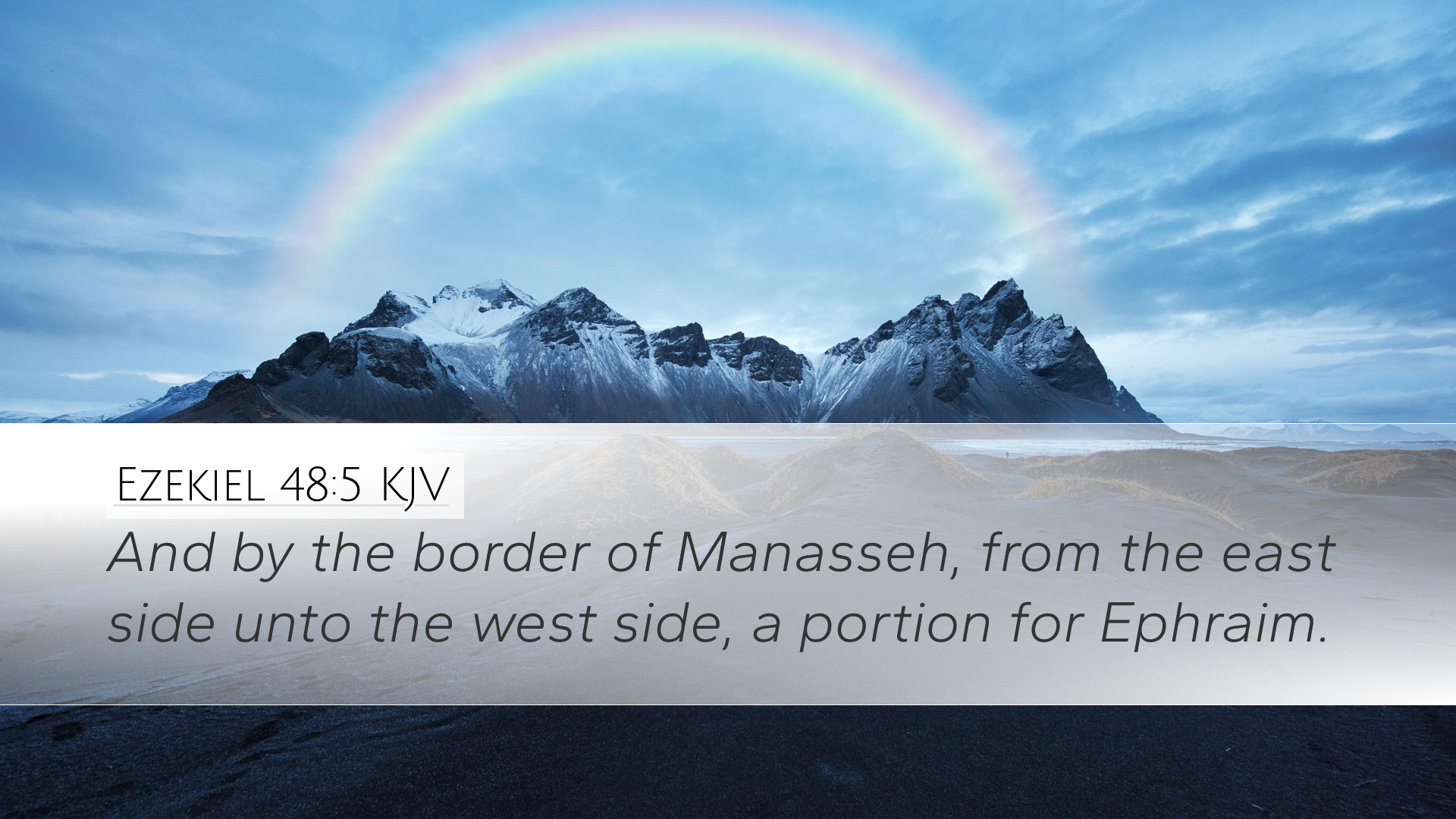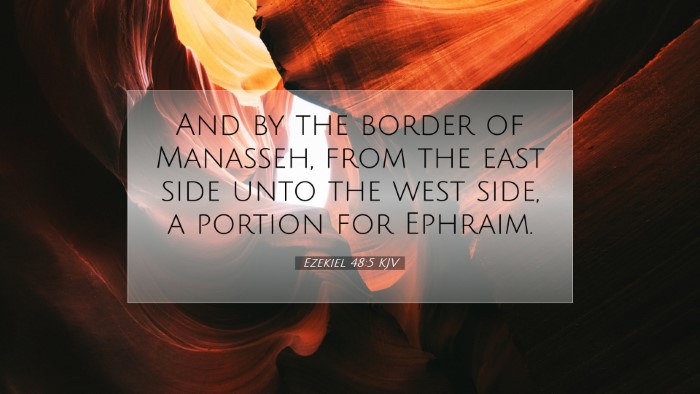Ezekiel 48:5 Commentary
Text of Ezekiel 48:5: “And by the border of Dan, from the east side unto the west side, a portion for Asher, one portion.”
Introduction to Ezekiel 48
The final chapter of Ezekiel presents a detailed vision of the future restoration of Israel, especially concerning the distribution of land among the tribes. This chapter serves as a conclusion to the book, emphasizing not only the return to the land but also the divine order that will prevail in the new Israel.
Contextual Background
Ezekiel prophesied during a time when Israel was in exile, and his visions often aimed at providing hope and restoration. Keil highlights that the division of land represented order and inheritance, crucial themes for a people displaced from their homeland.
The Significance of Tribal Allotments
- Understanding Tribal Identity: The allotment to Asher on the border of Dan signifies the importance of tribal identity. Each tribe is given its specific portion, which reinforces their unique heritage and role in the nation.
- Symbolic Geography: The description of geographic boundaries helps us to understand how God brings His people back to their inheritance. As Adam Clarke notes, the borders serve not just as physical markers, but also as spiritual reminders of God's covenant promises.
Insights from Commentaries
This verse, while succinct, permeates with thematic depth drawn from various public domain commentaries:
- Matthew Henry: Henry reflects on the distribution of the land, pointing out that it demonstrates God's justice and faithfulness. The specified borders remind the reader that God honors His promises, allowing each tribe to receive its lawful inheritance.
- Albert Barnes: Barnes interprets this division as a sign of God's order. He emphasizes that this was not merely practical but also theological—a divine indication of God's presence among His people and His intentions for their future unity and prosperity.
- Adam Clarke: Clarke sees the listing of tribes as an essential element of Israel's national identity. He stresses that Asher, situated by Dan, symbolizes the mutual strength found in unity among tribes, highlighting the cooperative spirit that will characterize restored Israel.
Theological Implications
The distribution of land among tribes carries several theological implications that are particularly poignant for pastoral teaching and scholarship:
- Divine Justice: The equitable distribution of land showcases God's justice and ensures that every tribe receives its due portion, reflecting His fairness.
- Covenant Fulfillment: The fulfillment of God's promises in allocating land reinforces the theme of covenant fidelity, showing that God remembers His commitments.
- Unity and Diversity: The diverse inheritance among the tribes symbolizes the beauty of unity within diversity in the body of Christ, a principle that is applicable to modern-day congregational life.
Application for Pastors and Scholars
This text provides rich material for sermons and lessons, inviting deep reflection on issues of justice, community, and God's faithfulness. Pastors may draw from the symbolic nature of land distribution to encourage congregants on how to appreciate their heritage and call within the body of Christ. Scholars can explore the historical and theological dimensions of the land as a continuum of God's redemptive purposes from the Old Testament to the New Testament.
Conclusion
Ezekiel 48:5 encapsulates a message of hope, justice, and divine order firmly rooted in the historical narrative of Israel. By examining the implications of tribal allotments, we can better appreciate God's unfailing commitment to His people and the ongoing relevance of this scripture in our understanding of community, identity, and divine faithfulness.


